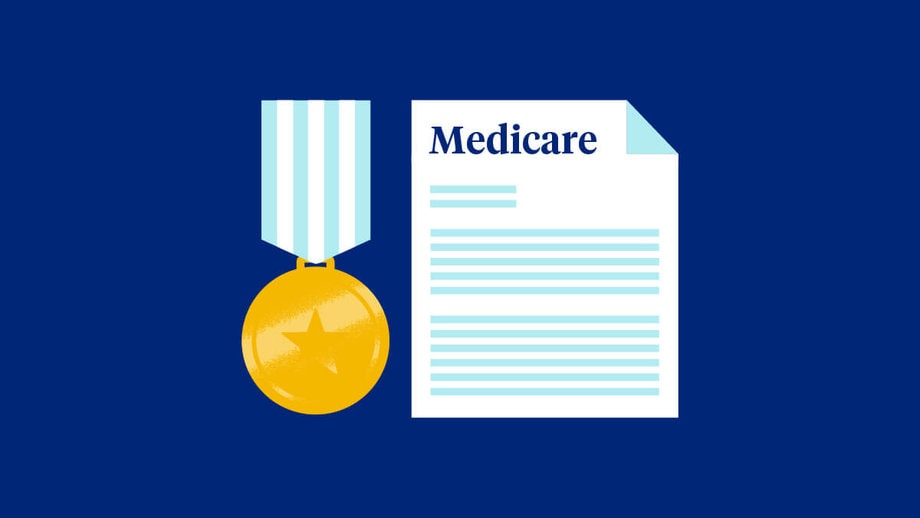Key Information on Medicare Enrollment for Near-Retirees

Are you nearing retirement and wondering about Medicare enrollment? Look no further! This article will provide you with key information to make the process easier.
Discover the eligibility requirements, the initial enrollment period, and special enrollment periods.
Learn about Medicare Parts A, B, C, and D, and how to choose the right plan for you.
Don’t forget about late enrollment penalties! We’ve got you covered with resources for assistance and support.
Let’s navigate Medicare together!
Key Takeaways
- Medicare enrollment eligibility requires being 65 years or older, having a qualifying disability if under 65, and being a U.S. citizen or legal resident for at least five years.
- The initial enrollment period for Medicare starts three months before the 65th birthday and ends three months after, and special enrollment periods are available for individuals who meet certain eligibility requirements.
- Medicare has different parts, including Part A, which covers hospital stays, Part B, which covers doctor visits, Part C (Medicare Advantage), which includes Parts A and B with additional benefits, and Part D, which provides prescription drug coverage.
- When choosing a Medicare plan, individuals should consider Medicare Advantage plans offered by private insurance companies, Medicare Supplement (Medigap) plans, and Prescription Drug Plans (Part D), and compare the benefits and costs to find the best option for their needs and budget.
Eligibility Requirements
To enroll in Medicare, you must meet certain eligibility requirements.
The Medicare enrollment process is straightforward, but it’s important to have the necessary documentation ready.
Firstly, you must be 65 years or older, or have a qualifying disability if you’re under 65.
Additionally, you must be a U.S. citizen or legal resident who’s lived in the country for at least five years.
It’s essential to have your Social Security number, proof of age, and legal residency documents on hand.
You’ll also need to provide information about your current health insurance coverage, if any.
Medicare enrollment is a crucial step in securing healthcare coverage for yourself or your loved ones, so make sure to gather all the required documentation to ensure a smooth process.
Initial Enrollment Period
Now it’s time to talk about the Initial Enrollment Period for Medicare. This is the first opportunity you have to sign up for Medicare, and it’s based on your age eligibility requirements.
It’s important to note that your coverage start date will depend on when you enroll during this period.
Age Eligibility Requirements
During your initial enrollment period, you will need to meet specific age eligibility requirements to enroll in Medicare. These age restrictions are an important aspect of retirement planning, as they determine when you can start receiving Medicare benefits. The table below provides an overview of the age eligibility requirements for each part of Medicare:
| Medicare Part | Age Eligibility |
|---|---|
| Part A | 65 or older |
| Part B | 65 or older |
| Part C | 65 or older |
| Part D | 65 or older |
It is crucial to be aware of these age requirements and plan accordingly to ensure a smooth transition into Medicare. If you are nearing retirement, it is recommended to start familiarizing yourself with the enrollment process and gathering the necessary documentation to avoid any delays or complications. Remember, Medicare is here to serve you during your golden years, so make sure you take advantage of the benefits it offers.
Coverage Start Date
Once you meet the age eligibility requirements for Medicare enrollment, you can then move on to determining the coverage start date for your initial enrollment period. This is an important step in the enrollment process, as it determines when your Medicare coverage will begin.
During your initial enrollment period, which starts three months before your 65th birthday and ends three months after, you have the option to choose from different coverage options. These options include Original Medicare (Part A and Part B), Medicare Advantage (Part C), and prescription drug coverage (Part D).
It’s crucial to carefully consider these options and select the one that best suits your healthcare needs. Remember, the coverage start date for your initial enrollment period is significant, so be sure to make your decision within the designated timeframe to avoid any gaps in coverage.
Special Enrollment Periods
You can take advantage of special enrollment periods for Medicare. These enrollment periods are designed to allow individuals who meet certain eligibility requirements to enroll in Medicare outside of the initial enrollment period or general enrollment period.
Special enrollment periods are typically granted to individuals who experience certain life events, such as losing employer-based health coverage, moving to a new area, or becoming eligible for Medicaid.
By taking advantage of these special enrollment periods, you can ensure that you have access to the Medicare coverage you need when you need it most.
It’s important to understand the specific eligibility requirements for each special enrollment period and to act promptly to enroll during the designated time frame.
Medicare Parts A, B, C, and D
To continue your Medicare enrollment journey, let’s delve into the different components of Medicare: Parts A, B, C, and D. Understanding these parts is crucial in making informed decisions about your healthcare coverage.
Medicare Part A covers hospital stays, skilled nursing facility care, and some home health services.
Part B covers doctor visits, outpatient care, and medical supplies.
Medicare Part C, also known as Medicare Advantage, is an alternative to Original Medicare and includes Parts A and B coverage with additional benefits like prescription drugs and dental care.
Lastly, Medicare Part D provides prescription drug coverage.
It’s important to explore all your Medicare enrollment options and understand the coverage offered by each part, so you can choose the plan that best meets your needs.
Choosing the Right Medicare Plan
Make an informed choice by carefully evaluating the various Medicare plans available to you. When comparing coverage options, consider the following:
- Medicare Advantage (Part C): These plans are offered by private insurance companies and usually include coverage for prescription drugs. They often provide additional benefits like dental, vision, and hearing coverage.
- Medicare Supplement (Medigap) Plans: These plans work alongside Original Medicare (Parts A and B) to help cover out-of-pocket costs. They may provide coverage for services like copayments, deductibles, and coinsurance.
- Prescription Drug Plans (Part D): These plans cover prescription medications and are available as standalone plans or as part of a Medicare Advantage plan.
By comparing the benefits and costs of these different Medicare plan options, you can find the one that best meets your individual needs and budget.
Late Enrollment Penalties
When comparing the benefits and costs of different Medicare plan options, it’s important to be aware of the potential consequences of late enrollment. Late enrollment can lead to late enrollment penalties, which can significantly increase the cost of your Medicare coverage. These penalties are added to your monthly premium and can continue for as long as you have Medicare.
Avoiding late enrollment is crucial to avoid these consequences. To avoid late enrollment penalties, make sure to enroll in Medicare during your Initial Enrollment Period (IEP), which starts three months before you turn 65 and ends three months after your birthday month. If you miss this window, you may still be able to enroll during the General Enrollment Period, but you may face higher premiums.
It’s important to plan ahead and understand the deadlines to avoid any unnecessary penalties.
Resources for Assistance and Support
When it comes to Medicare enrollment, understanding the eligibility requirements can be crucial. You may need assistance in navigating the process or finding local support services to help you with enrollment.
Online resources can also provide valuable assistance and guidance throughout the enrollment process.
Eligibility Requirements Explained
You can obtain assistance and support in understanding the eligibility requirements for Medicare enrollment through a variety of resources. Here are three options to consider:
- Medicare’s official website:
Visit the Medicare website to access detailed information on eligibility requirements, including the different parts of Medicare and the criteria for each. The website also provides helpful resources such as FAQs, enrollment forms, and contact information for further assistance.
- Local Social Security office:
Schedule an appointment at your nearest Social Security office, where trained professionals can guide you through the Medicare enrollment process. They can help you determine your eligibility, explain the initial enrollment period, and provide information on when your coverage will start.
- Medicare counseling programs:
Take advantage of Medicare counseling programs offered by nonprofit organizations, such as the State Health Insurance Assistance Program (SHIP). These programs offer free personalized assistance to help you understand the eligibility requirements and make informed decisions about your Medicare coverage.
Finding Local Support Services
To continue accessing assistance and support for understanding Medicare enrollment eligibility requirements, it is helpful to explore local resources in your area. Finding local support options and community resources can provide valuable assistance as you navigate the complexities of Medicare enrollment. These resources can offer guidance, answer your questions, and provide the necessary information to make informed decisions. Here is a table highlighting some local support services that you can consider:
| Support Service | Description |
|---|---|
| Local Medicare counseling offices | These offices provide one-on-one assistance and can help you understand your Medicare options. |
| Senior centers | Senior centers often offer educational seminars and workshops on Medicare enrollment. |
| Non-profit organizations | Many non-profit organizations offer resources and counseling services to help with enrollment. |
| State Health Insurance Assistance Programs (SHIP) | SHIP provides free, personalized counseling on Medicare options and benefits. |
| Medicare.gov | The official Medicare website offers a wealth of information and resources for enrollment. |
Online Enrollment Assistance
Continuing to explore resources for assistance and support, it’s helpful to consider online enrollment options for navigating the complexities of Medicare enrollment. Online resources provide convenient and accessible assistance, allowing you to navigate the Medicare enrollment process from the comfort of your own home.
Here are three key benefits of utilizing online enrollment assistance:
- Convenience: Online enrollment allows you to complete the necessary paperwork and submit your application at any time that suits you best, without the need to visit a physical office or wait in line.
- Virtual Support: Many online platforms offer virtual support, such as live chat or phone assistance, to guide you through the enrollment process and answer any questions you may have.
- Easy Access to Information: Online resources provide a wealth of information, including detailed explanations of Medicare plans, eligibility requirements, and enrollment deadlines, ensuring you have all the information you need to make informed decisions.
Frequently Asked Questions
Are There Any Alternatives to Medicare for Near-Retirees Who Are Not Eligible for the Program?
If you’re not eligible for Medicare, there are alternative options available to you. Look into non-Medicare options that provide similar healthcare coverage for near-retirees like yourself.
What Types of Medical Services Are Covered Under Medicare Parts A, B, C, and D?
Medicare Parts A, B, C, and D cover various medical services. Hospital stays, doctor visits, prescription drugs, and additional benefits like vision and dental are included. These services are important for your health and well-being.
Can I Enroll in Medicare After the Initial Enrollment Period Without Facing Any Late Enrollment Penalties?
Yes, you can enroll in Medicare after the initial enrollment period without facing any late enrollment penalties. There are alternatives to consider, and it’s important to understand the coverage types and plan differences before comparing options.
How Do Medicare Advantage (Part C) Plans Differ From Original Medicare (Parts a and B)?
Medicare Advantage (Part C) plans differ from Original Medicare (Parts A and B) in terms of coverage and cost. They offer additional benefits like prescription drug coverage and may have lower out-of-pocket costs.
What Resources Are Available to Help Me Compare and Choose the Right Medicare Plan for My Needs?
When it comes to selecting a Medicare plan, there are resources available to help you compare and choose the right option for your needs. These resources can assist in comparing Medicare options.









